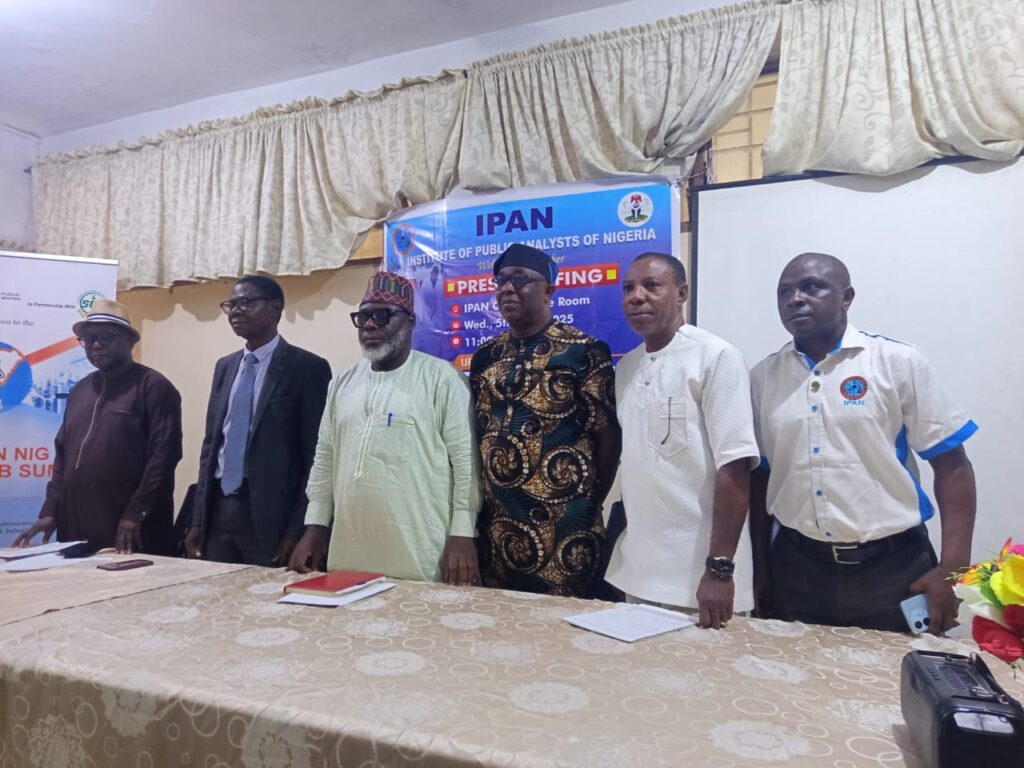The Institute of Public Analysts of Nigeria (IPAN) has stepped up enforcement measures to tackle the growing menace of fake analysts and unlicensed laboratories across the country.
Registrar and Chief Executive Officer of IPAN, Aliyu Abdullahi Angara, disclosed this at a joint press conference announcing the 2025 Maiden NIG ANALAB Summit and the 32nd Mandatory Continuous Professional Development (MCPD) Workshop.
According to him, the institute has introduced a practice licence stamp to help authenticate certified analysts and laboratories, a move he said will significantly reduce quackery in the profession.
“We have introduced one regulatory mark that has made us stand out — the practice licence stamp. It’s a security feature designed by the Nigerian Security Printing and Minting Company,” Angara said.
He explained that every licensed analyst must now possess an individual professional stamp, and all analyses must be conducted in IPAN-accredited laboratories.
Each certificate of analysis, he added, must carry two security seals — that of the analyst and the laboratory — to validate authenticity.
“Every certificate of analysis contains these two marks. They are what authenticate analytical results. Based on this, we’ve been able to trace a number of quacks,” he stated.
Angara further noted that IPAN is collaborating with regulatory bodies to investigate and prosecute offenders, as well as issue disclaimers and authentication certificates when disputes arise over analytical reports.
The IPAN Registrar said the upcoming NIG ANALAB Summit (November 10–11) and MCPD Workshop (November 12–13) will serve as national platforms for stakeholders from government, industry, academia, and development agencies to strengthen Nigeria’s analytical laboratory systems.
Themed “Strengthening Analytical Laboratory Regulatory Framework”, the summit will focus on policy integration and reforms, accreditation and compliance systems, capacity building, digital innovation, and public-private partnerships.
Angara also appealed to the media to help drive public awareness and promote industry accountability.
“Credible laboratories build a credible nation. When analytical results are trustworthy, policies become sound, industries become competitive, and citizens become safe,” he emphasized.















